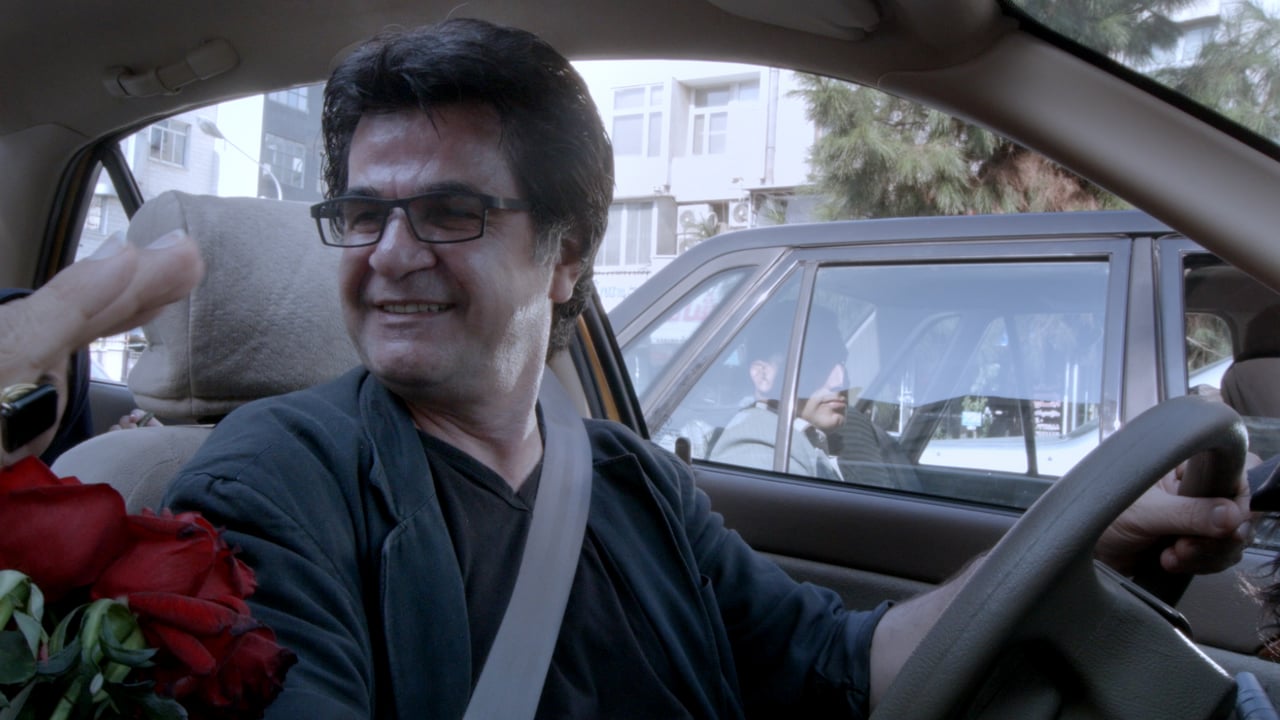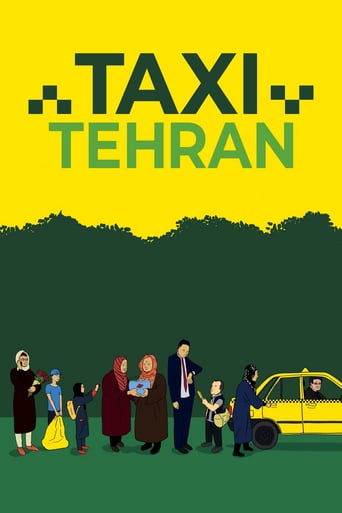



I think this is a new genre that they're all sort of working their way through it and haven't got all the kinks worked out yet but it's a genre that works for me.
View Moreit is the rare 'crazy' movie that actually has something to say.
View MoreIt's an amazing and heartbreaking story.
Easily the biggest piece of Right wing non sense propaganda I ever saw.
View MoreIf you're not aware of the situation: The director and Taxi driver of this movie was banned of making films or rather write them. Which is why he found a loophole making movies inside a close environment. His last one played inside a house the entire time. So the director of a great movie like "Offside" was too critical for the Iranian government. Or maybe they were missing the song and dance numbers.On a more serious note: This is of course unacceptable and you can laud the fact that he won't let anybody hold him down. His creative vein will not seize to make things happen. So while I also applaud this and like the episodic structure of what happens in Iran, as a sociological study (if you want to call it that), it's still a drag at times and obvious in its containment.
View MoreJafar Panahi is an Iranian filmmaker who has made some very interesting films, such as "The Mirror". However, despite his films seeming to be very slight, enjoyable and rather apolitical, he's gotten into trouble with his government. He was arrested back in 2010 and no specific charges were forthcoming for some time. In the meantime, filmmakers from all over the world pressed for his release. Eventually he was released but the government also said that he "was making a film against the regime and it was about the events that followed the [2009] election" and that was why he was detained. Because of these vague charges, Panahi has been banned from filmmaking for 20 years. But, Panahi has continued to fight this and made "This Is Not a Film" (2011) and "Taxi" (2015) while under this ban. These projects were smuggled out of Iran and have been shown in the West...and the exact consequences to Panahi are uncertain. As far as his latest film, Taxi, is concerned it's an extremely strange project--so strange I really cannot rate it. The film is completely untraditional and I've never seen anything like it. The film looks like a documentary with no real actors, though the story is in fact a story and the folks participating are not unsuspecting members of the public. In the film, Panahi plays himself and he's inexplicably driving a taxi and using a dashcam to record his passengers. The recordings are supposedly meant to illustrate some of the societal themes Iranians are struggling with and they supposedly talk without realizing they are being filmed. Among the many themes you learn about is an underground cottage industry which illegally disseminates banned Western films, how the incredibly strict Sharia Law is impacting society negatively as well as the overall climate of suspicion and secrecy. It's all incredibly strange and looks a lot like a reality television show...albeit one set in Iran.So did I love the film? No...not really. It is very interesting and thought-provoking but it also lacks the sort of narrative or style of a film. There are no real opening or closing credits and it looks more like raw footage of Panahi and his passengers was simply smuggled out of the country. Because of this, you cannot rightfully give the film a score such as an A, B or C...it's more a piece of art that also has the ability to place the viewer into the cab along with these people to glean little snippets of their lives and their concerns. Intriguing and out this week on Netflix.
View MoreSomething like this will definitely accidentally fool many into believing it is real, but its primary aim isn't that and instead it weaves in a really diverse, dynamic group of characters that makes for a rather significant, if not always engaging feature. Something about it always kept me at a distance, both emotionally and being able to fully connect with it. In the end, I definitely admire and appreciate it more than I actually enjoyed it. That's not to say it didn't have many moments that were both emotionally-grabbing and funny. The film has a mostly well-balanced tone in terms of how it focuses on its humor and how it uses it to advance many of its thematic points. Overall, a success.
View MoreImagine, if you will, a world in which you may walk freely on the streets, but are hardly free at all. That's the world in which Iranian director Jafar Panahi lives, breathes and tries to work - one we're introduced to in gentle, tartly comic fashion in his latest film. Taxi, which won the Golden Bear at the 2015 Berlin International Film Festival, gives viewers a seductive, sobering glimpse into modern- day Iran, a country where criminals are executed for petty theft and women jailed for trying to attend a men's volleyball match.The premise of Taxi is simple - Panahi himself, with cameras cleverly affixed throughout his vehicle, drives a taxi through the teeming streets of Iran. Throughout the day, Panahi the cabbie picks up strangers, friends and relatives, played by themselves or non- professional actors. Along the way, he makes idle conversation with them, or they chat amongst themselves - ordinary chatter that carries quite extraordinary import.It's fascinating, thought-provoking stuff, delving deeply into ideas and questions about Iran and its politics while firmly couched in the language of the everyday. Two passengers launch into an impassioned discussion on the merits (or lack thereof) of capital punishment and syariah law. The broken body of a man is bundled into the backseat and, with what he thinks is his dying breath, he tries to circumvent laws that will prevent his sobbing wife from inheriting their home. Art and ideas are sold on the streets, the stuff of covert piracy, as the precocious Hana Saeidi, Panahi's young niece, relates to him the lessons she has learnt on how exactly to make films that will be 'screenable' in Iran.To be honest, the final film is an amiable if somewhat rickety affair. Parts of it work better as metaphors, faltering somewhat in the execution. For instance, Hana is, literally and metaphorically, the future - both of Iran and, with her own little hand-held camera, filmmaking. But the moment when she tries to exert control over a scene she's shooting from the window of the taxi, haranguing a little boy to behave differently so that her footage will pass muster in school, feels a little too on-the-nose. In a couple of instances, it's easy to identify the issues Panahi wants to raise: in a bowl of fish or an iPad video, he finds insights about the power of superstition and the tragedy of poverty. But the scenes themselves don't always work as well, ambling when they should sprint.Nevertheless, it's impossible to remain unmoved by the quiet power and heartbreaking passion of Taxi. This is a gem of a film: subtle, leisurely and surprisingly funny; thoughtful and deep but rarely overbearingly so. It's all the more impressive, of course, as a testament to Panahi's ongoing refusal to bend and break beneath the 20-year filmmaking ban that was slapped on him in December 2010. Since then, he's smuggled a film out of Iran on a flash drive baked into a cake, and assembled Taxi out of cam footage shot in broad daylight in Tehran. That's why, in ways both big and small, Taxi serves as a bold reminder of the bravery and strength of the human spirit.
View More